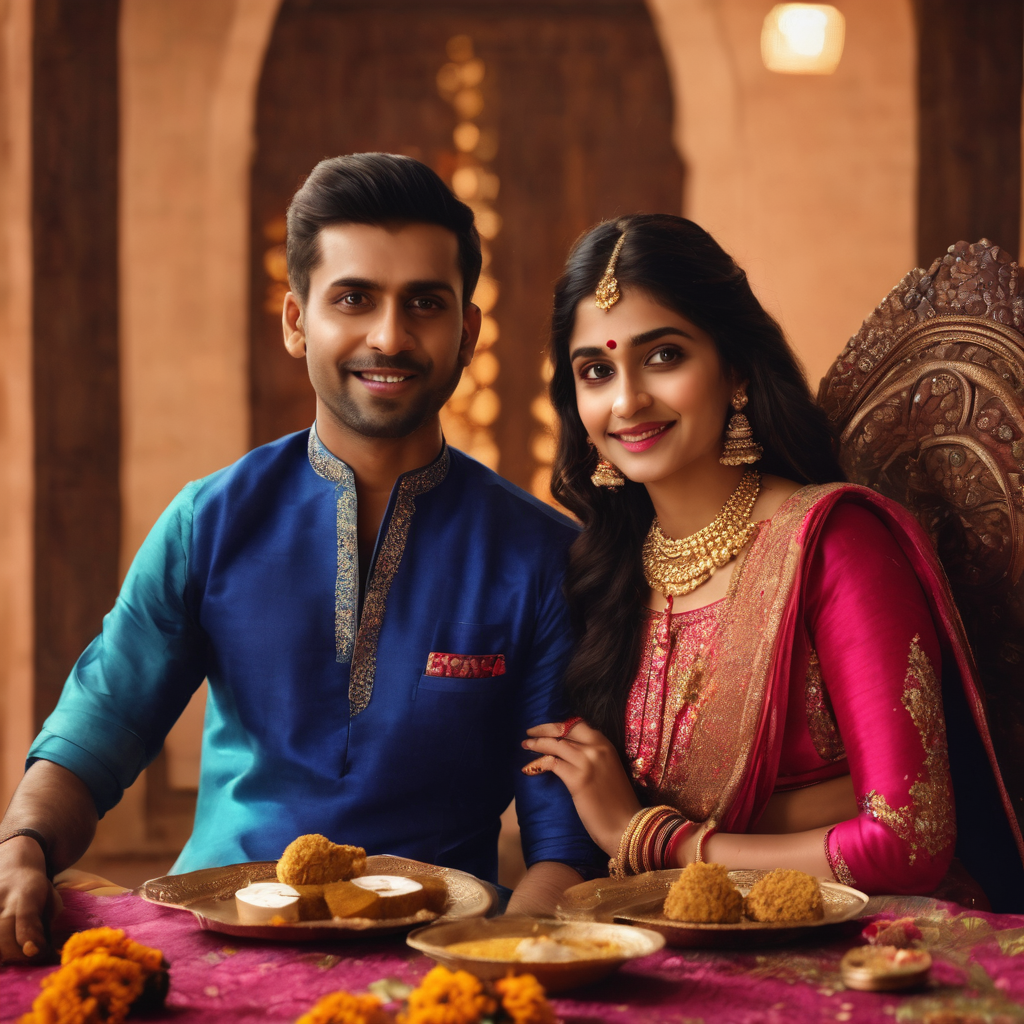Bhai Dooj is a unique day that exalts the bond between brothers and sisters. Also known as Bhai Phota in Bengal and Bhau Beej in Maharashtra, this occasion holds a special place in the hearts of families across India.
The Essence of Bhai Dooj
Bhai Dooj is celebrated on the fifth day of Diwali, two days after the grand festival of lights. While Raksha Bandhan, another significant festival, celebrates the brother’s pledge to protect his sister, Bhai Dooj reverberates with the sister’s love and blessings for her brother. It is a day dedicated to acknowledging the unique and enduring bond between siblings.
The word “Bhai” means brother, and “Dooj” refers to the second day of the lunar fortnight. The festival is known by different names across India, such as Bhau Beej in Maharashtra, Bhai Tika in Nepal, and Bhai Phota in Bengal, but its essence remains the same: celebrating the deep and irreplaceable connection between brothers and sisters.
The Legend of Bhai Dooj
Bhai Dooj has its own set of enchanting legends, with one of the most popular narratives involving Lord Yama, the god of death, and his sister Yamuna.
According to Hindu mythology, Lord Yama visited his sister Yamuna, who welcomed him with a heartfelt meal, affectionate gifts, and applied tilak (vermilion mark) on his forehead. Touched by his sister’s warmth and devotion, Lord Yama granted her a boon – that any brother who visits his sister and receives her love and blessings on Bhai Dooj would be shielded from suffering and premature death.
This legend underscores the power of sibling love and the significance of Bhai Dooj in Indian culture.
Traditions and Celebrations
Bhai Dooj is a day of joyous customs and rituals that reflect the depth of sibling affection. Here are some of the key traditions associated with Bhai Dooj:
- Tilak Ceremony: The day starts with the sister applying a tilak (a mark made with vermilion) on her brother’s forehead. This tilak signifies her prayers for his well-being and protection.
- Exchange of Gifts: Brothers offer gifts to their sisters as a token of their affection and appreciation. These gifts can range from sweets and clothing to more personalised presents.
- Sweets and Feasting: Special sweets are prepared and shared among family members. Bhai Dooj is a day for delicious feasts and gatherings, strengthening family bonds.
Significance of Bhai Dooj
Bhai Dooj holds several layers of significance:
- Celebrating Sibling Love: At its core, Bhai Dooj is a celebration of the beautiful bond between brothers and sisters. It’s a day to express love and gratitude for the support and protection siblings provide.
- Cultural Tradition: Bhai Dooj is a cultural tradition that transcends geographical and linguistic boundaries. It’s celebrated with equal fervour across India.
- Prayers for Well-Being: The tilak ceremony is not just a ritual but a heartfelt prayer for a brother’s happiness, health, and success. It emphasizes the protective and nurturing roles siblings play in each other’s lives.
- Family Togetherness: Bhai Dooj brings families together, fostering unity, togetherness, and the strengthening of familial bonds.
Bhai Dooj is celebrated with great enthusiasm across the country. Sisters prepare delicious meals and sweets for their brothers, and brothers, in turn, offer gifts as tokens of appreciation. In Maharashtra, the festival is known as Bhau Beej. Sisters invite their brothers to their homes, perform the tilak ceremony, and share a meal together. In Bengal, the festival is celebrated as Bhai Phota. Sisters apply a sacred mark on their brother’s forehead and wish them well. In Nepal, the festival is known as Bhai Tika. Sisters perform rituals and apply tika on their brother’s forehead, and brothers offer gifts in return. In South India, Bhai Dooj is known as Yama Dwitiya. It is celebrated with rituals and feasts, strengthening the sibling bonds.
Bhai Dooj is a celebration of love, respect, and gratitude between brothers and sisters. It embodies the values of family, unity, and cultural heritage. As the tilak is applied and aarti is performed, it is a reminder of the enduring and irreplaceable bond between siblings.
In the words of author Clara Ortega, “Siblings: children of the same parents, each of whom is perfectly normal until they get together.” Bhai Dooj is a day when these perfectly normal siblings come together to celebrate their extraordinary bond.

